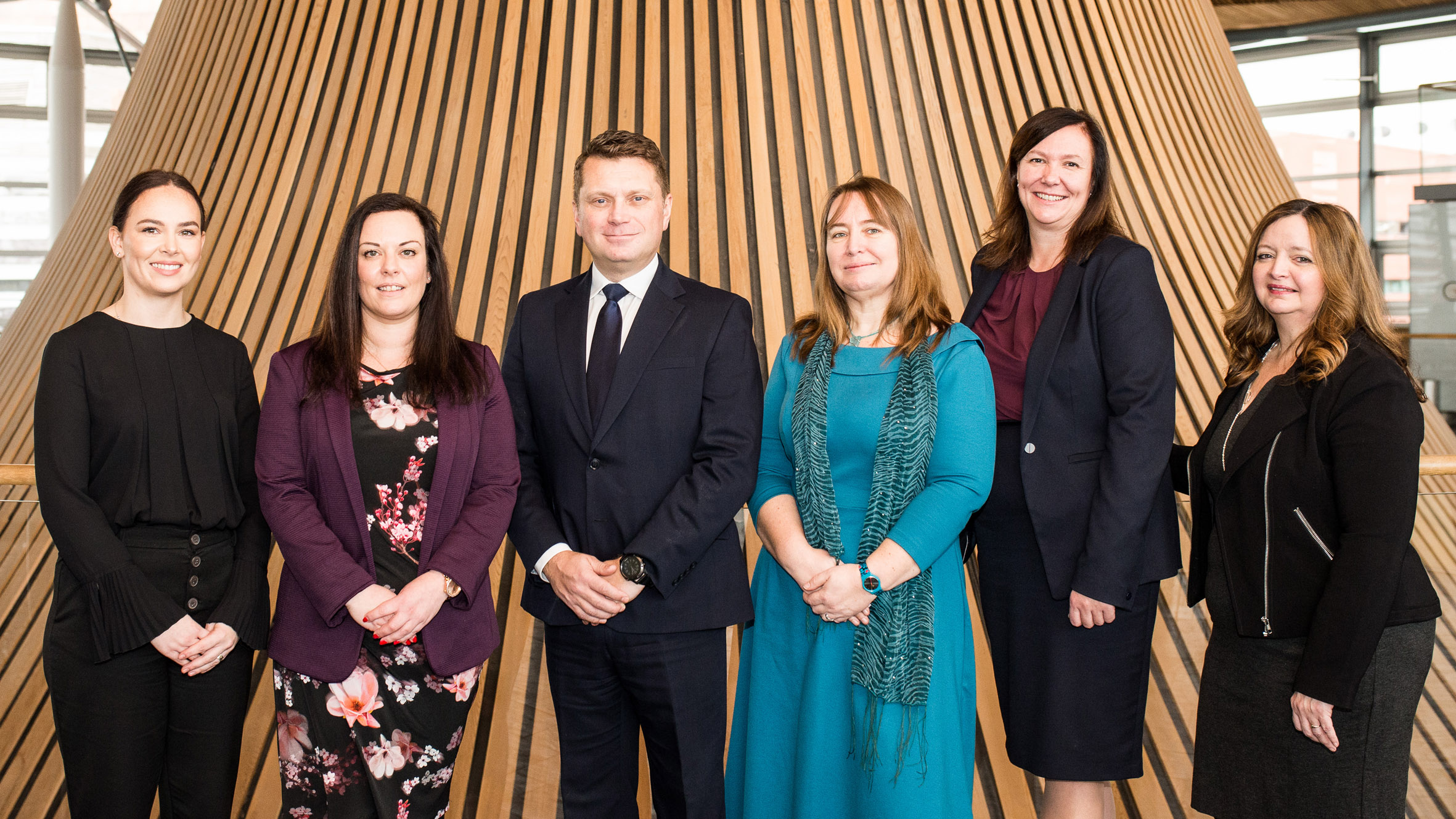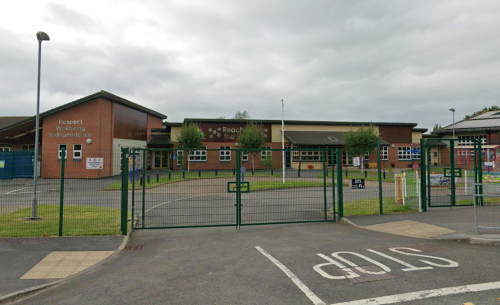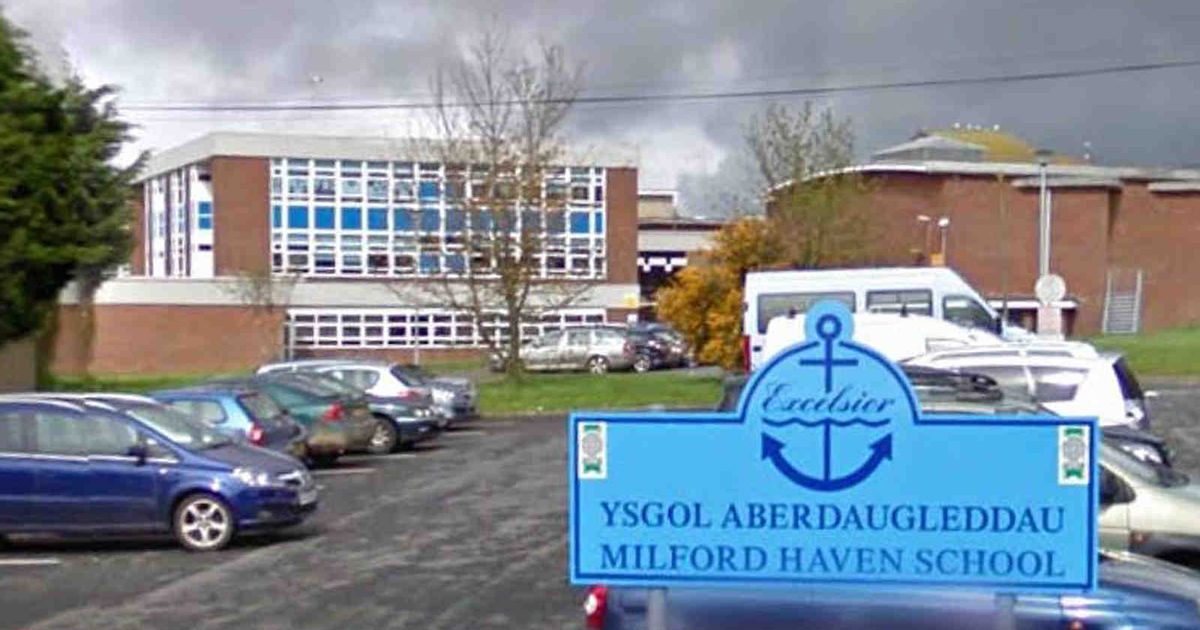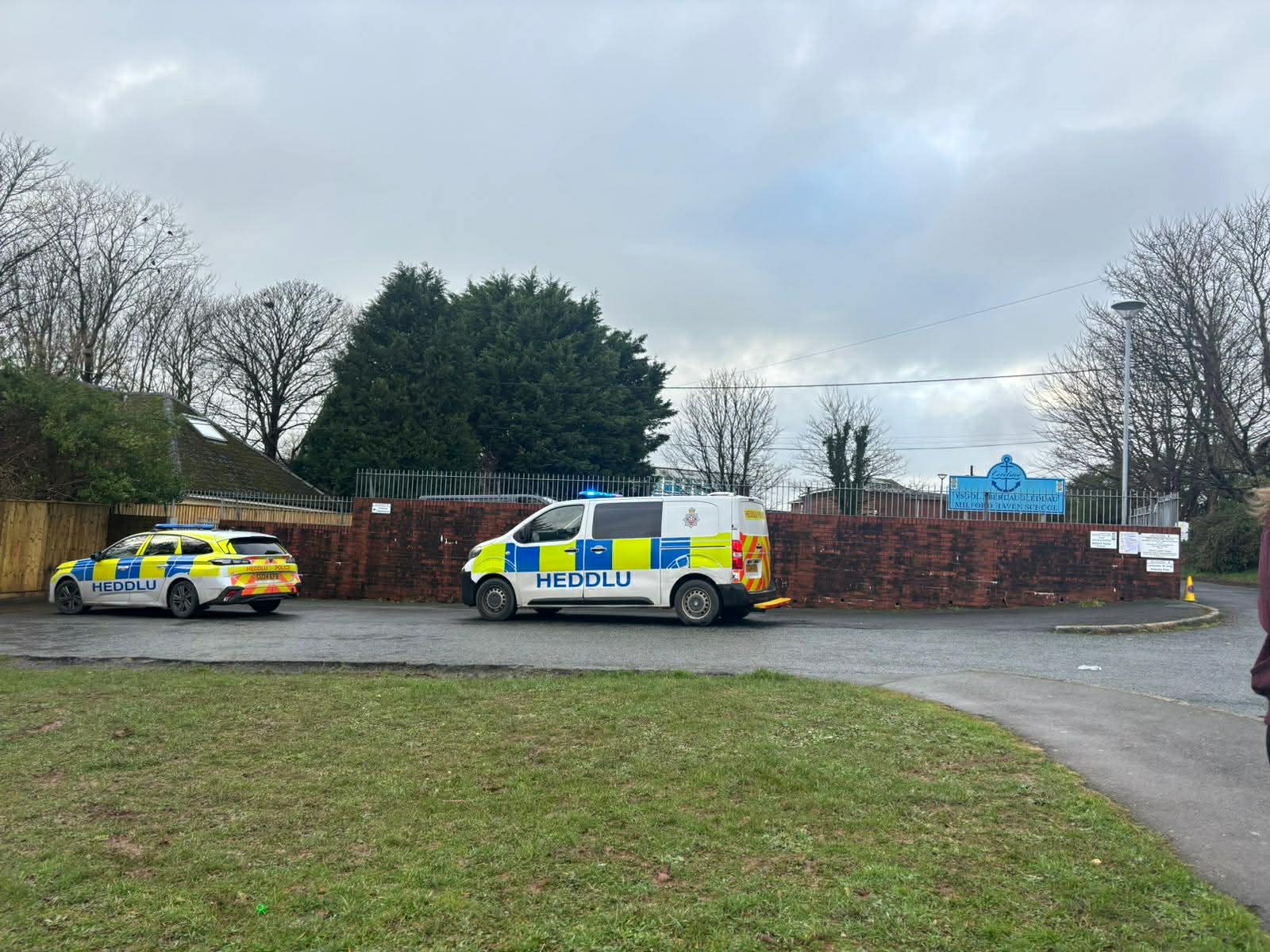Education
Vocational qualifications importance emphasised

THE IMPORTANCE of vocational qualifications to the Welsh economy was emphasised at the launch of this year’s VQ Awards in Wales at the Senedd in Cardiff.
Speakers called for vocational qualifications to have parity of esteem with academic qualifications and for the Welsh Government to continue prioritising investment in the sector.
Iestyn Davies, chief executive of ColegauCymru/CollegesWales, said Wales was one of the remaining parts of the world where there had been a reluctance to recognise the value of vocational qualifications.
Academic qualifications had hogged the limelight when young people were considering a career path. However, he believed a significant change was underway with politicians now accepting the key importance of vocational qualifications to the economy of Wales.
He called on the people assembled at the launch event to spread the word about the success of vocational qualifications and lifelong learning in Wales to ensure that the Welsh Government continued to prioritise investment in the sector.
Vikki Howells, AM for Cynon Valley, who sponsored the launch event, said during her 16-year teaching career she had wished that there was a greater vocational offer for her students.
There remained a challenge to make young people and their parents, who played a crucial role in directing their children, embrace everything that vocational qualifications had to offer.
She praised the Welsh Government for the work it had already done and continued to do to promote vocational qualifications.
The VQ Awards are jointly organised by the Welsh Government, the National Training Federation for Wales (NTfW), ColegauCymru/CollegesWales, Qualifications Wales and the Education Workforce Council. The Welsh Government’s funding has support from the European Social Fund.
The Education Workforce Council’s chair Angela Jardine said it was exciting to be a new partner in the high-profile awards which celebrated the success and high standards achieved in vocational education to create the Wales of the future.
By maintaining a Register of Education Practitioners, the council aimed to contribute to improving the standards of teaching and the quality of learning in Wales. The register would provide the professional evidence to achieve parity of esteem between vocational and academic qualifications, she added.
Sarah John, chair of the NTfW, said: “The VQ Awards provide a great opportunity for learners, employers and their trainers to celebrate and publicise the positive impact that vocational qualifications have on the lives of individuals and the productivity of businesses in Wales. Upskilling in the changing vocational skills needed by businesses to be competitive is critical as they continue to evolve.”
Cassy Taylor, Associate Director for Vocational Qualifications with Qualifications Wales, said: “Vocational qualifications are the gateway to a rewarding career and we are delighted to be sponsoring the VQ Awards again this year.
“The awards are a perfect way to showcase the talent of learners and the commitment of tutors and employers to develop the skills in our workforce that are the bedrock of the economy.”
Stacey Davies, Human Resources Manager at Gestamp Tallent Ltd, an automotive manufacturer from Llanelli, spoke about the company winning the VQ Employer of the Year Award last year.
“Winning this prestigious award was an immensely proud moment for the plant,” she said. “To be recognised for the early accomplishments of an ambitious but exciting learning and development strategy continues to be very encouraging for all the stakeholders.”
Vocational qualifications play a key role in the Gestamp Tallent Growth Programme, which aims to upskill the entire workforce by creating tailor-made, individual development plans, revamping an apprenticeship programme and introducing leadership and management solutions and a programme for high potential employees.
The VQ Awards are designed to recognise and celebrate star learners, trainers and employers in every part of Wales who have used technical, practical and vocational qualifications to achieve success.
Nominations are now sought in four categories: VQ Intermediate Learner of the Year, VQ Higher Learner of the Year, VQ Trainer of the Year and VQ Employer of the Year. It’s easy to enter the awards. Just download a nomination form at https://www.vqday.wales which has full details about the awards. The closing date is noon on March 8.
From the entries, a panel of judges will select the category finalists for a high-profile awards ceremony to be held at the National Museum of Wales, Cardiff on May 15 to coincide with VQ Day.
Education
Second west Wales school placed in lockdown within days

Precautionary measures activated at Ysgol Brynteg after morning disturbance outside gates
CARMARTHENSHIRE pupils were kept inside classrooms after a precautionary lockdown was triggered at Ysgol Brynteg on Friday morning (Feb 6), marking the second west Wales secondary school to enter lockdown in the same week.
Police were called shortly after 9:00am following reports of a verbal altercation outside the school grounds.
Officers from Dyfed-Powys Police attended and the Llanelli school activated its safeguarding procedures while the situation was assessed.
No weapons were reported, no injuries have been confirmed and there have been no arrests at this stage. The incident is understood to have involved a dispute outside the site rather than inside the school itself.
Pupils remained indoors under staff supervision while officers made checks. Once police were satisfied there was no ongoing risk, the lockdown was lifted and lessons continued as normal.
A spokesperson said the measure was purely precautionary.
The incident comes just days after armed officers were deployed to Milford Haven School following a serious assault on a teacher, prompting a temporary closure and widespread concern among parents.
While the circumstances in Llanelli were far less severe, the two events occurring so close together have heightened anxiety among families across west Wales.
Schools routinely use lockdown procedures when there is any uncertainty or potential threat nearby, even if the risk later proves minimal. The approach is designed to err on the side of caution and protect pupils while emergency services investigate.
Parents were informed that Brynteg was safe and operating normally once the situation had been resolved.
There is currently no indication that pupils inside the school were directly involved in the disturbance.
The Herald understands enquiries are ongoing.
Both incidents underline how quickly everyday school days can be disrupted, and how safeguarding responses are increasingly becoming part of standard practice across Welsh schools.
Anyone with information about the Llanelli incident is asked to contact police.
Crime
Teacher discharged as Milford School to reopen Monday after serious assault

Deputy head praises ‘calm and professional’ staff and pupils during lockdown
A TEACHER injured in a serious incident at Milford Haven Comprehensive School has been discharged from hospital as the school confirmed it will reopen on Monday with extra support in place.
A 15-year-old boy remains in police custody on suspicion of attempted murder following the alleged assault at around 3:20pm on Thursday (Feb 5).
Officers from Dyfed-Powys Police were called to the school after reports that a pupil had assaulted a member of staff while brandishing a weapon. The site was placed into immediate lockdown, with all pupils later sent home safely.
In a fresh statement issued late on Friday afternoon, school leaders and the council thanked staff, pupils and emergency services for their response.
Deputy headteacher Daryl John said: “On behalf of the school staff and governors, I would like to thank and praise all of the staff and the small number of pupils who remained on site. They all conducted themselves with professionalism and were calm throughout.
“We are extremely grateful to the emergency services for their rapid and effective response. Our heartfelt best wishes go out to our colleague, and we look forward to their full and speedy recovery.”
Jon Harvey, leader of Pembrokeshire County Council, said he was pleased the school would reopen next week.
He added: “If there are any pupils who have been affected by the incident and require additional support, please ask teachers or staff who will be able to help with well-being provision.
“Lockdowns such as that implemented on Thursday afternoon are routinely rehearsed by schools so that on the very rare occasions where they are needed, everyone knows what to do.
“As a Local Authority we will of course continue to support Milford Haven School in whatever way possible following this awful incident.”
Earlier, the council and Hywel Dda University Health Board confirmed specialist support would be available for staff and learners, and advised anyone needing urgent mental health help to call NHS 111 and press option two.
Local MP Henry Tufnell and teaching unions including NASUWT and National Education Union have also expressed concern and support for the school community.
Parents described the town as subdued, with one telling The Herald it felt “like a lockdown morning” with no children walking to school.
Police enquiries are ongoing.
Crime
Teacher discharged as police step back from Milford Haven school after assault

Teenager remains in custody as school closes and patrols increased to reassure community
POLICE have confirmed they are no longer stationed at Milford Haven School after a teacher was assaulted by a pupil on Thursday afternoon (Feb 5), as the injured member of staff has now been discharged from hospital.
In a joint statement issued by Dyfed-Powys Police, Pembrokeshire County Council and Hywel Dda University Health Board, Superintendent Chris Neve said swift action had been taken to protect pupils and staff.
He said: “Police are no longer in attendance at Milford Haven Comprehensive School, following a report of the assault of a teacher at approx. 3.20pm this afternoon.
“I would like to reassure parents, and the wider community, that swift action was taken to both safeguard pupils and teachers, and to trace the suspect as soon as this report was received.
“The teacher has now been discharged from hospital and is being supported by specialist officers. All pupils at the location were safe, and all returned home unharmed. A 15-year-old boy has been arrested and remains in police custody as enquiries continue.
“You will see a higher than usual police presence in the area over the coming days – these will be dedicated patrols to provide further reassurance.”
The injured teacher was earlier taken to hospital by road ambulance.
An immediate lockdown was put in place at the school while emergency services responded. Most pupils had already left for the day, but those still on site were secured inside classrooms and offices as a precaution.
School closed on Friday
Council leader Cllr Jon Harvey said the school would be closed to pupils on Friday to allow support and safety measures to continue.
He said: “We would like to thank staff and pupils at Milford Haven School for implementing a swift and effective lockdown in response to this incident.
“While the school will be closed to pupils tomorrow, if there are any learners who require additional support they are welcome to attend and there will also be support for staff on site.
“We’d like to reassure learners and parents, along with the wider community, that all measures to ensure safety are being taken.”
The health board added that anyone needing urgent mental health support can call NHS 111 and press option 2 for 24-hour assistance.
National spotlight
The incident has drawn national media attention.
BBC News broadcast live from the school gates during its Ten O’Clock News bulletin, while ITV News and several national titles also covered developments.
Journalists from a number of UK outlets, including The Sun, contacted The Herald as events unfolded, with several Welsh and national publishers using photographs first taken by Herald reporters.
Residents said the scale of coverage was unprecedented for the normally quiet port town.
Police enquiries are continuing.
Photo caption:
Police outside Milford Haven School following Thursday’s incident (Pics: Herald).
-

 Crime3 days ago
Crime3 days agoSex offender jailed after living off grid in Pembrokeshire and refusing to register
-

 Health2 days ago
Health2 days agoHealth board targets rise in steroid and gym drug use across west Wales
-

 News4 days ago
News4 days agoPrincess of Wales visits historic Pembrokeshire woollen mill
-

 Health5 days ago
Health5 days agoDoctor struck off after sexual misconduct findings at Withybush Hospital
-

 Crime2 days ago
Crime2 days agoTeacher injured and teenager arrested for attempted murder at Milford Haven School
-

 Education7 days ago
Education7 days agoIndustry insight helps marine cadets chart career course
-

 Crime4 days ago
Crime4 days agoHakin man’s appeal delayed again as Crown Court seeks guidance on insurance law
-

 News5 days ago
News5 days agoHerald journalists to feature in true-crime documentary on local lockdown murder




























